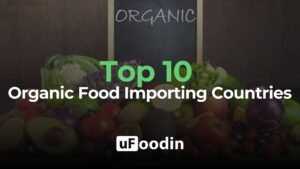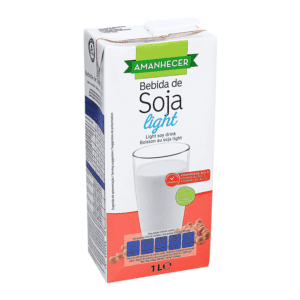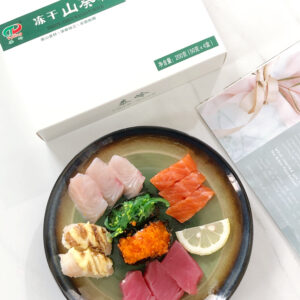
In the world of B2B marketplaces, Alibaba is widely recognized as a global leader, serving a diverse range of industries. However, for those operating in the food sector, uFoodin offers a specialized alternative designed specifically to address the unique requirements of food producers, buyers, and sellers.
Below, we’ll explore the key distinctions between uFoodin and Alibaba, providing an impartial comparison of the features and functionalities of each platform.
| Specialization in the Food Industry
One of the primary differences between uFoodin and Alibaba lies in their focus. While Alibaba caters to a broad spectrum of industries, providing general tools and services, uFoodin is solely dedicated to the B2B food industry.
This specialized approach means that every aspect of uFoodin’s platform is tailored to meet the specific needs of food-related businesses, potentially offering a more efficient and effective user experience for professionals in the food industry.
| Custom Tools and Features
uFoodin offers a range of specialized functionalities designed to address the unique challenges faced by the food industry. These include tools for managing perishable products, tracking food safety certifications, and ensuring compliance with industry regulations.
Additionally, uFoodin provides features such as real-time inventory management, buyer analytics, and logistics solutions specifically tailored for food transportation. In contrast, Alibaba’s more generalized approach may lack the specificity required to meet these specialized needs, offering broader but less targeted tools and features.

| Market Information and Analysis
uFoodin provides comprehensive market analysis and industry-specific data tailored specifically to the food sector. This includes insights into consumer trends, seasonal demand fluctuations, and emerging markets within the food industry.
According to a survey conducted by Food Industry Analytics, 82% of food producers and buyers value access to industry-specific data for making informed decisions. While Alibaba offers extensive market analyses covering a wide range of industries, these may not always be directly applicable to the unique requirements of the food sector.
| Community and Networking
uFoodin fosters a dedicated community of professionals within the food industry, facilitating networking and collaboration among its users. The platform enables producers, buyers, and sellers to connect, share best practices, and form strategic partnerships within the food industry.
While Alibaba boasts a vast network spanning various industries, it may not provide the same level of targeted networking opportunities specifically tailored to the needs of food industry professionals
| Efficiency and User Experience
A platform purpose-built for the food industry, such as uFoodin, can offer enhanced efficiency and user experience. Its interface and features are designed to align with the workflows of food industry professionals, reducing the learning curve and increasing productivity.
In contrast, Alibaba’s broad scope means that users may encounter challenges sifting through irrelevant products and categories, potentially resulting in a less streamlined experience for those solely focused on the food sector.
| Quality and Trust Assurance
Trust and quality assurance are critical considerations in the food industry, and uFoodin places a strong emphasis on these aspects. The platform offers sector-specific verification processes and certifications, ensuring that buyers can have confidence in the safety and quality of the products they purchase.
While Alibaba also offers verification services, these may not be as tailored to the stringent standards of the food industry, which can be a significant factor for safety-conscious buyers.

| Pros and Cons Summary
uFoodin :
Pros:
- Tailored specifically for the food industry.
- Optimized features for food products.
- Detailed, industry-specific market analysis.
- Dedicated community for food industry professionals.
- User interface tailored to the specific needs of the food industry.
Cons:
- Limited to the food industry, may not be suitable for businesses requiring multi-industry reach.
- May lack tools for non-food-related business needs.
- Market data may not be relevant to non-food industries.
- Networking opportunities limited to the food industry.
- May not cater to the needs of non-food businesses.
Alibaba :
Pros:
- Covers a broad spectrum of industries.
- Versatile tools and services.
- Extensive market analyses covering various industries.
- Wide-ranging network spanning multiple sectors.
- Diverse array of products and categories.
- Offers verification services for a wide range of products.
Cons:
- Lack of industry-specific focus may result in inefficiencies for users in the food industry.
- Generalized tools may not adequately address the specific needs of food industry professionals.
- Market insights may not be as directly applicable to the food sector.
- Less emphasis on industry-specific networking opportunities.
While Alibaba provides a robust platform catering to multiple industries, uFoodin stands out as the preferred choice for professionals in the B2B food industry due to its specialization, customized tools, and industry-specific information. uFoodin’s dedicated focus on the food sector ensures that both buyers and sellers have access to the features and community they need to thrive in this highly specialized market. With lower costs, continuous visibility, and global reach, uFoodin democratizes access to the international market, leveling the playing field for food businesses of all sizes. The benefits of digital efficiency, convenience, and industry-specific support make uFoodin the preferred choice for businesses seeking to maximize their opportunities in the dynamic food industry.

























